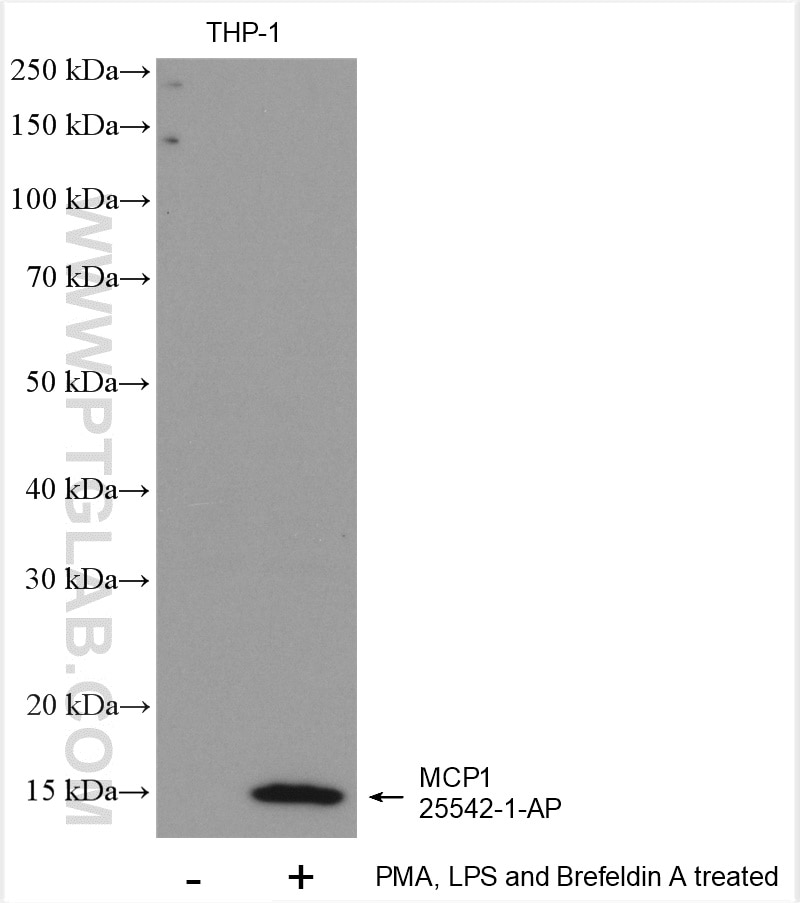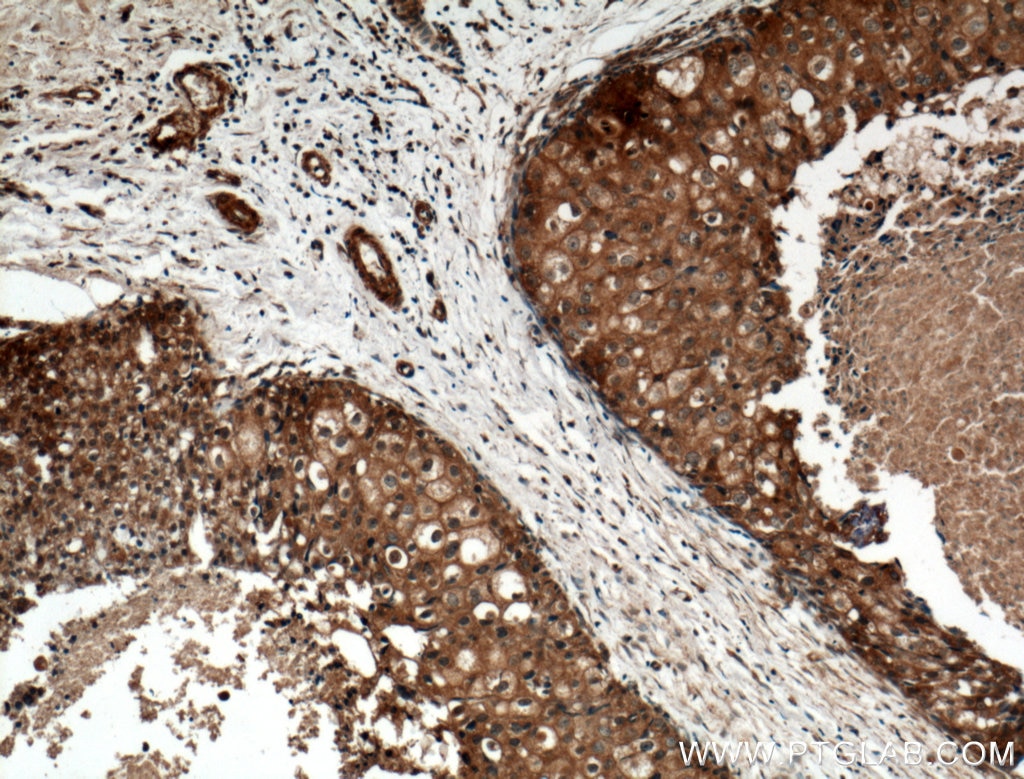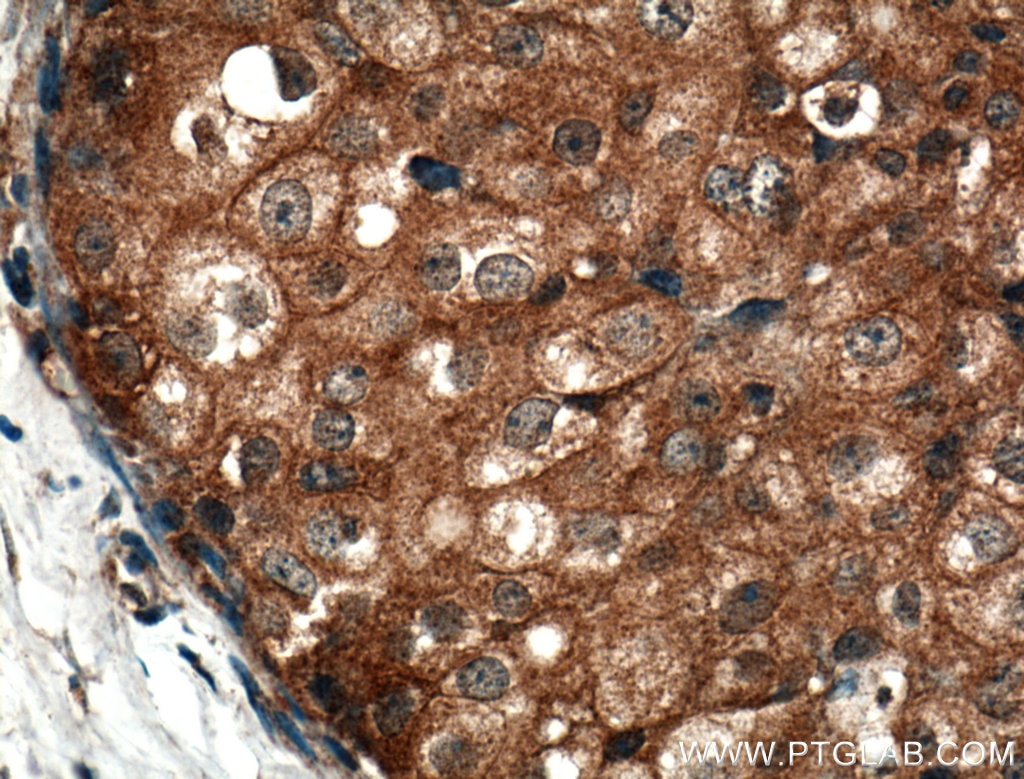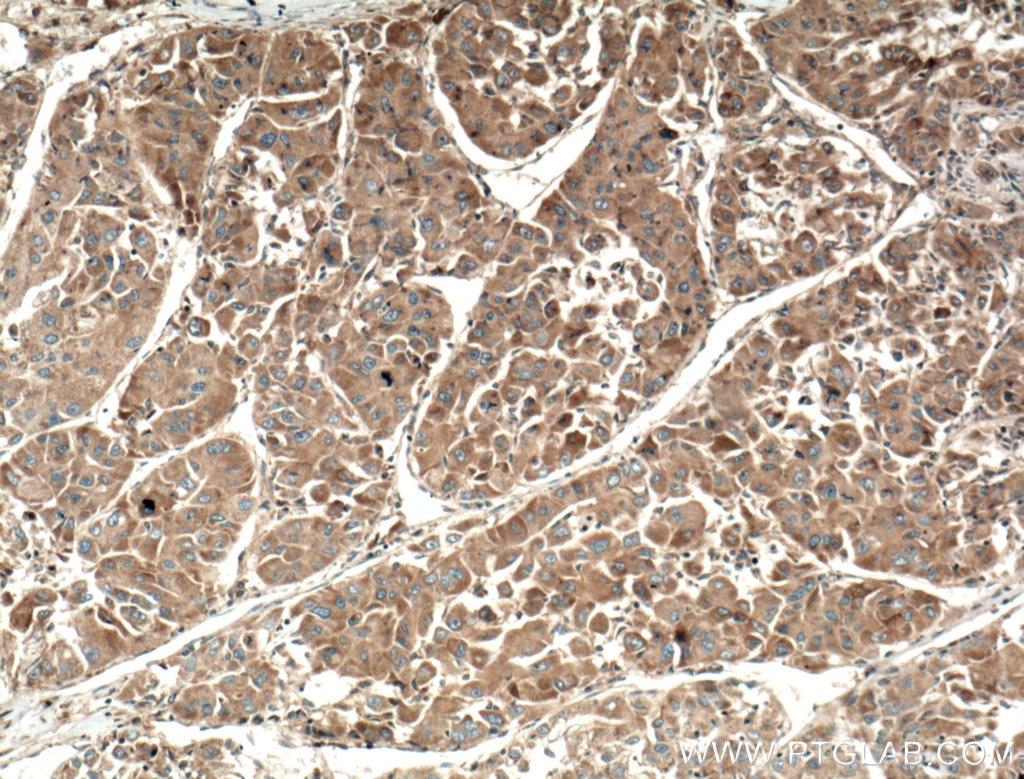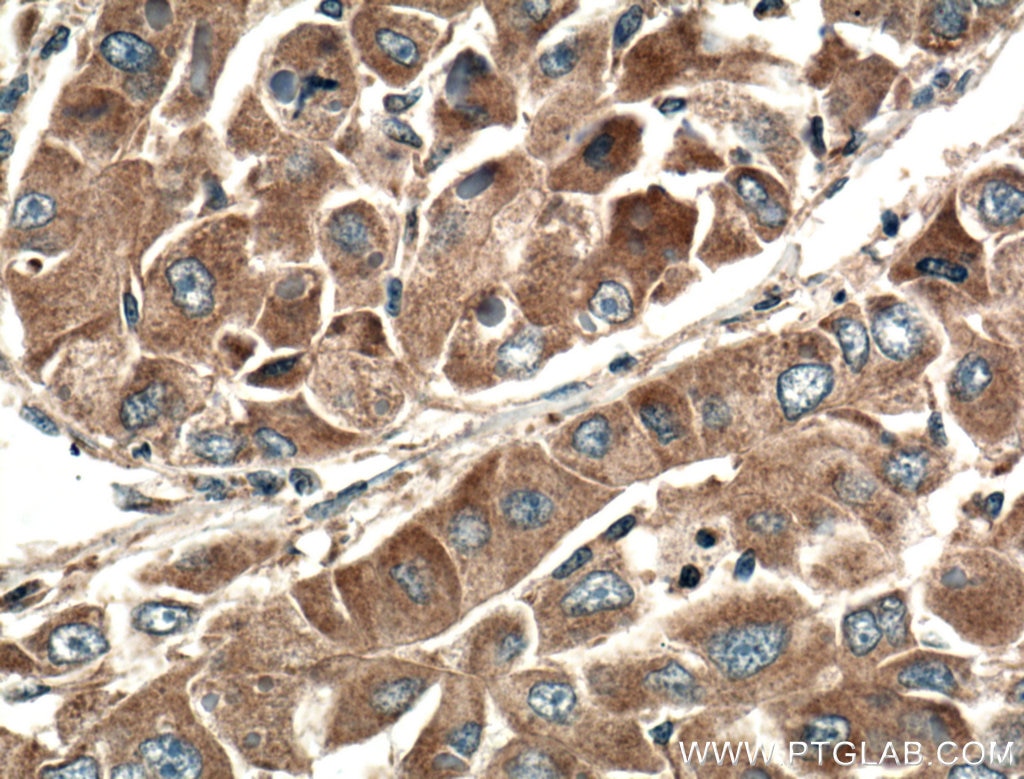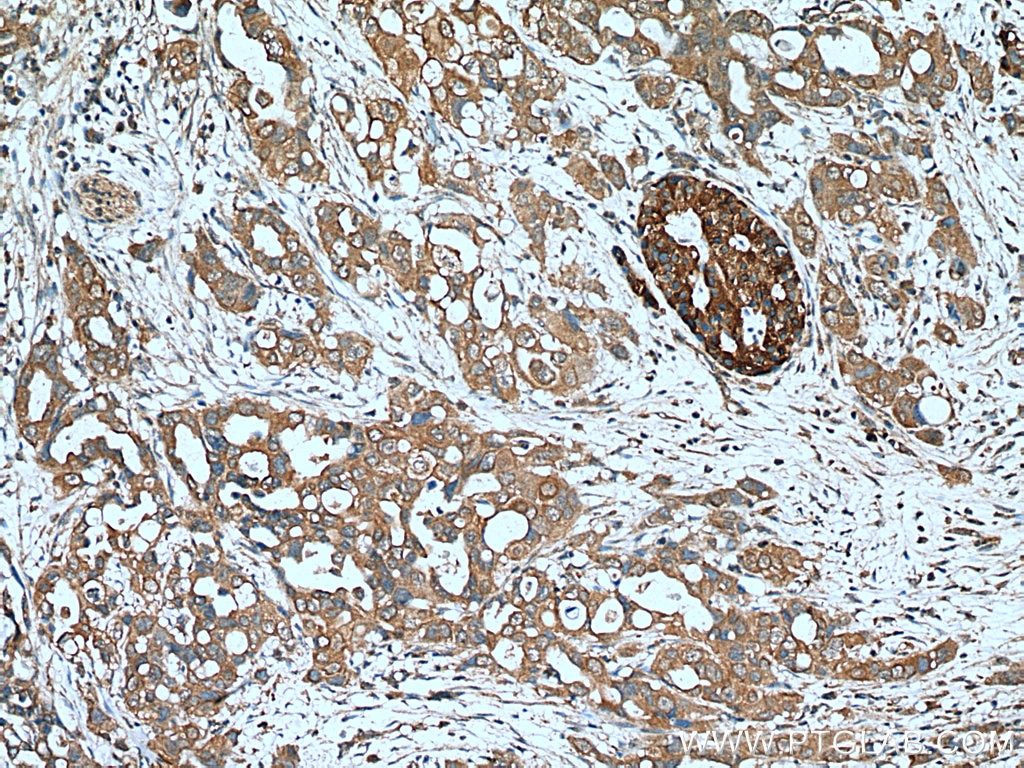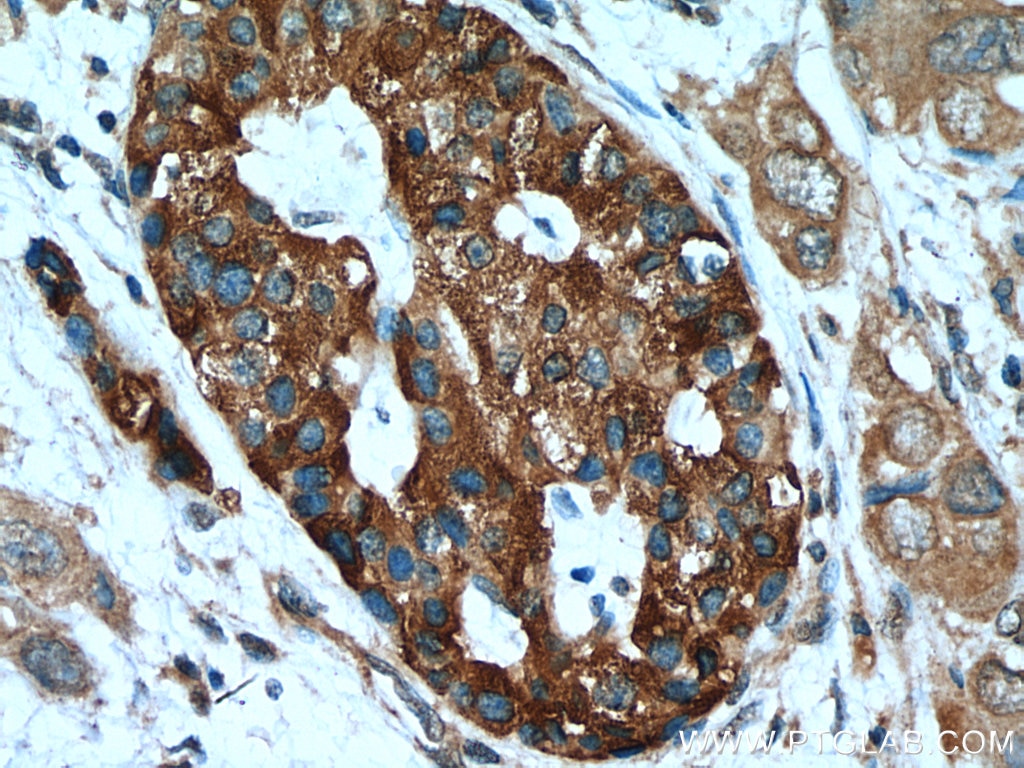Anticorps Polyclonal de lapin anti-MCP1
MCP1 Polyclonal Antibody for IHC, ELISA
Hôte / Isotype
Lapin / IgG
Réactivité testée
Humain et plus (1)
Applications
IHC, IF, ELISA, Blocking
Conjugaison
Non conjugué
N° de cat : 25542-1-AP
Synonymes
Galerie de données de validation
Applications testées
| Résultats positifs en WB | PMA, LPS and Brefeldin A treated THP-1 cells, |
| Résultats positifs en IHC | tissu de cancer du sein humain, tissu de cancer du foie humain, tissu de cancer du pancréas humain il est suggéré de démasquer l'antigène avec un tampon de TE buffer pH 9.0; (*) À défaut, 'le démasquage de l'antigène peut être 'effectué avec un tampon citrate pH 6,0. |
Dilution recommandée
| Application | Dilution |
|---|---|
| Western Blot (WB) | WB : 1:1000-1:4000 |
| Immunohistochimie (IHC) | IHC : 1:50-1:500 |
| It is recommended that this reagent should be titrated in each testing system to obtain optimal results. | |
| Sample-dependent, check data in validation data gallery | |
Applications publiées
| IHC | See 29 publications below |
| IF | See 12 publications below |
Informations sur le produit
25542-1-AP cible MCP1 dans les applications de IHC, IF, ELISA, Blocking et montre une réactivité avec des échantillons Humain
| Réactivité | Humain |
| Réactivité citée | Humain, Lapin |
| Hôte / Isotype | Lapin / IgG |
| Clonalité | Polyclonal |
| Type | Anticorps |
| Immunogène | MCP1 Protéine recombinante Ag10601 |
| Nom complet | chemokine (C-C motif) ligand 2 |
| Masse moléculaire calculée | 99 aa, 11 kDa |
| Poids moléculaire observé | 11 kDa |
| Numéro d’acquisition GenBank | BC009716 |
| Symbole du gène | MCP-1/CCL2 |
| Identification du gène (NCBI) | 6347 |
| Conjugaison | Non conjugué |
| Forme | Liquide |
| Méthode de purification | Purification par affinité contre l'antigène |
| Tampon de stockage | PBS with 0.02% sodium azide and 50% glycerol |
| Conditions de stockage | Stocker à -20°C. Stable pendant un an après l'expédition. L'aliquotage n'est pas nécessaire pour le stockage à -20oC Les 20ul contiennent 0,1% de BSA. |
Informations générales
Monocyte chemotactic protein 1 (MCP1; also known as CCL2), is a chemokine that can be expressed in monocytes, macrophages, and endothelial cells, and belongs to the CC subfamily of chemokines. Chemokines are a superfamily of secreted proteins involved in immunoregulatory and inflammatory processes. Research has shown that the expression of MCP1 increases in the serum of patients with acute myocarditis. MCP1 is up-regulated in many types of CNS injury, including ischemia, hemorrhage, trauma, infection, hypoxia, and peripheral nerve axotomy. MCP1 has also been implicated in the pathogenesis of diseases characterized by monocytic infiltrates, such as psoriasis, rheumatoid arthritis, and atherosclerosis.
Protocole
| Product Specific Protocols | |
|---|---|
| WB protocol for MCP1 antibody 25542-1-AP | Download protocol |
| IHC protocol for MCP1 antibody 25542-1-AP | Download protocol |
| Standard Protocols | |
|---|---|
| Click here to view our Standard Protocols |
Publications
| Species | Application | Title |
|---|---|---|
ACS Cent Sci Macrophage Inactivation by Small Molecule Wedelolactone via Targeting sEH for the Treatment of LPS-Induced Acute Lung Injury | ||
Bone Res Osteopontin deficiency promotes cartilaginous endplate degeneration by enhancing the NF-κB signaling to recruit macrophages and activate the NLRP3 inflammasome | ||
J Neurol Neurosurg Psychiatry Molecules of senescent glial cells differentiate Alzheimer's disease from ageing | ||
Cancer Lett LRP1 induces anti-PD-1 resistance by modulating the DLL4-NOTCH2-CCL2 axis and redirecting M2-like macrophage polarisation in bladder cancer | ||
Theranostics Macrophage targeted theranostic strategy for accurate detection and rapid stabilization of the inflamed high-risk plaque. |
